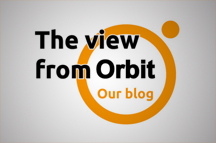 The votes are in and counted and 1,227 councillors have been elected across 353 wards in 32 local authorities. The dust has now begun to settle and the horse-trading as to who will run these administrations is well underway.
The votes are in and counted and 1,227 councillors have been elected across 353 wards in 32 local authorities. The dust has now begun to settle and the horse-trading as to who will run these administrations is well underway.
It was the SNP who clearly won these local elections. They have more councillors, 431, and are the largest party in half of Scotland’s councils. The Tories scored big, making significant gains, increasing their number by 164 from 2012 to 276 councillors. Labour slipped back badly, losing 133 councillors to stand at 262. Indeed, the Conservatives have leapfrogged Labour in terms of councillor numbers and can also be counted as winners, in terms of momentum.
In terms of numbers, there have been boundary changes which mean that some comparisons are made with “notional” outcomes in 2012, the last time these councils were contested. On that count, the SNP performed at the lower level of expectations are notionally down by a fractional seven seats. However, in terms of absolute numbers, the SNP have ended up with more councillors than in 2012. Plus the SNP are the largest party in Scotland’s four largest cities – including Glasgow, where jubilant supporters attended their ousting of Labour.
The Conservatives registered gains pretty well everywhere in Scotland, more than doubling their number of councillors and are the largest party in six councils – Aberdeenshire, Dumfries and Galloway, East Renfrewshire, Perth and Kinross, Scottish Borders and South Ayrshire, without taking charge of any council. Indeed, Scotland is now No Overall Control territory – with the exception of the Highlands and Islands where the Independents hold sway.

You knew it was going to be a good day for Ruth Davidson’s party when they picked up a Council seat in Gordon Brown’s backyard of Cowdenbeath and other previous no-go areas such as the Highlands, where they picked up seats for the first-time in 22 years and Glasgow, where they picked up seven seats, including a councillor in Shettleston, one of Scotland’s most deprived communities.
The Liberal Democrats mostly held steady – although, sometimes, that was from a decidedly low existing base. But they drew attention to relatively good results in areas where they have Westminster election hopes. The Greens added seats.
The results further reinforce the fact that it is the independence question that dictates Scottish voting behaviour, with every election now see through the prism of the constitutional question.
Ms Davidson led a campaign that was unashamedly about stopping the SNP’s drive for a referendum rather than about local issues. It was inevitable given this that it was the Conservatives who were set to make strong gains, at the expense of both the SNP and to a greater extent the Labour Party. The Tories are now firmly positioned as the main opposition to a second independence referendum.
It is inevitable that these voting patterns will again dominate the General Election, although with a different result because of the first-past-the-post system used at Westminster, which is likely to see the SNP emerge as the clear winners.
Until it is off the table every future election in Scotland – council, Scottish Parliament and Westminster – will be dominated by the constitutional question, the very situation those who voted Conservative wanted to avoid.












